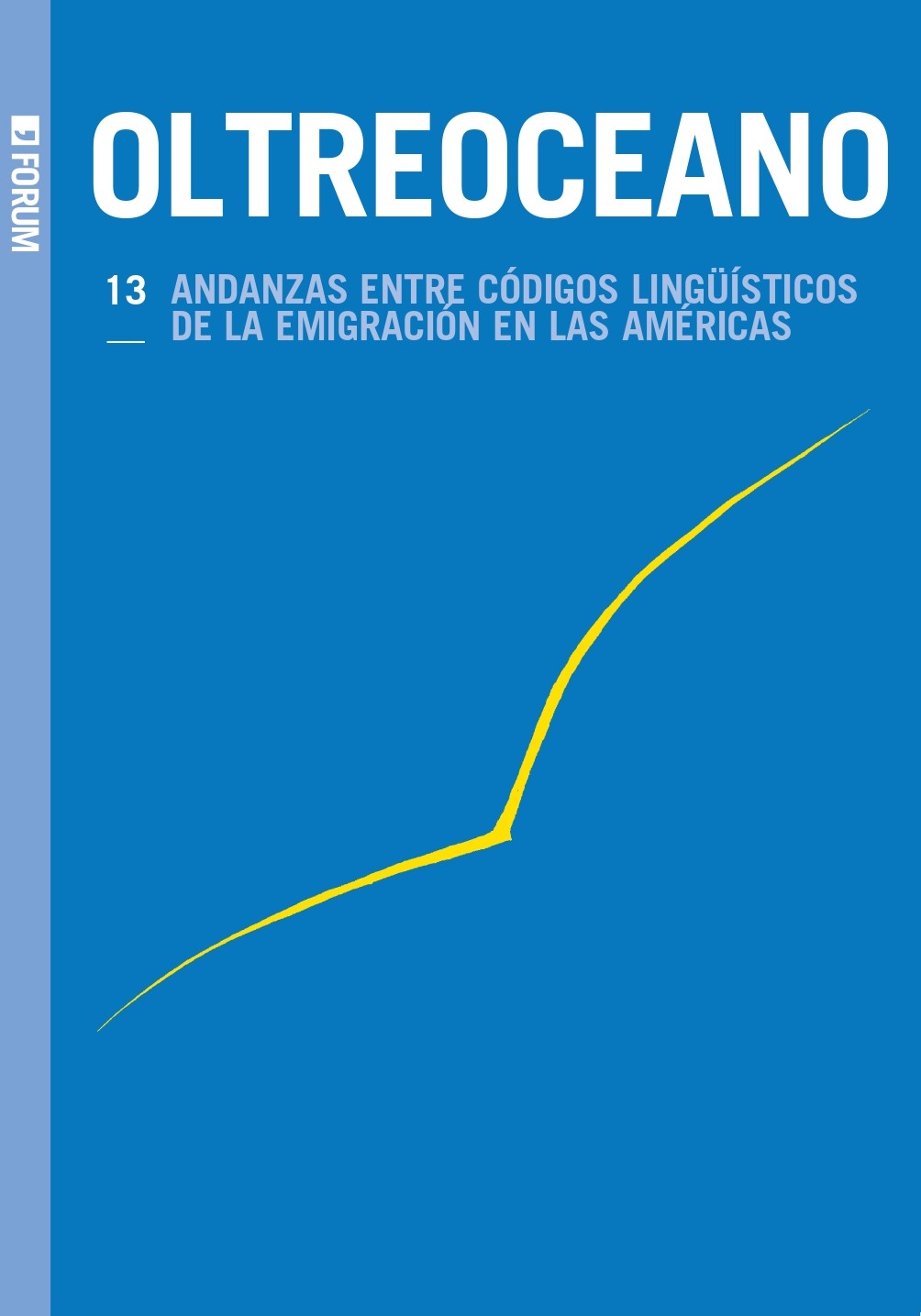Una mirada al paisaje del español en Honduras
Keywords:
lengua, migración, política lingüística, contactoAbstract
El análisis del proceso histórico que ha seguido la lengua española en América resulta interesante desde distintas perspectivas. En estas páginas se propone una breve reflexión del español en Honduras desde la llegada de los colonos, el tratamiento en la política lingüística educativa y la denominación actual de la lengua. Se comenta que Honduras es un país plurilingüe y pluricultural lo que constituye un innegable contacto de las lenguas vernáculas y del inglés con el español, este último contacto como producto de la reciente migración que da como resultado una variación dialectal importante del español hondureño.
A look to the landscape of spanish in Honduras
The analysis of the historical process that the Spanish language has followed in America results very interesting on many perspectives. In this page a brief reflection of the Spanish in Honduras since the Colonists arrival is proposed, the treatment of the educative linguistic policies and the actual denomination of the language. It is commented that Honduras is a multilingual and multicultural country which constitute an undeniable contact of the vernacular tongues and the English and Spanish, this last contact as a product of the recent migration that results in an important dialectical variation of the Honduran Spanish.
Uno sguardo al paesaggio dello spagnolo in Honduras
L’analisi del processo storico della lingua spagnola in America è interessante da diversi punti di vista. L’articolo propone una breve riflessione sullo spagnolo in Honduras, a partire dall’arrivo dei coloni, sino alla politica linguistica educativa e alla denominazione attuale della lingua. Dato che si tratta di un paese multilingue e multiculturale, inevitabile è il contatto delle lingue locali e dell’inglese con lo spagnolo. Quest’ultimo contatto, prodotto della recente migrazione, determina un’importante variazione dialettale della lingua parlata in Honduras.
Downloads
References
Álvar, M. (1990): Americanismos en la Historia de Bernal Díaz del Castillo. Madrid: Cultura Hispánica. Instituto de Cooperación Iberoamericana.
Bogantes Zamora, C. (2004): Lengua y poder: migración, cultura nacional e identidad. Revisa Diálogos Latinoamericanos, 9. Recuperado de http://www.lacua.au.dk/publications/9_di__logos_latinoamericanos/lengua_y_poder.pdf
Carías, M. (2005): De la patria del criollo a la patria compartida. Choluteca: Ediciones subirana
Cardoso, C. & Pérez, H. (1977): Centroamérica y la economía occidental (1520-1930). San José: Universidad de Costa Rica.
Castillo Martínez, M. (1993): Historia, arte y sociedad en la Colonia. In Secretaria de Relaciones Exteriores Tegucigalpa (pp. 11-32). Honduras.
Dirección General de Estadísticas y censos DIGESTYC (2017): Gobierno de El Salvador. Recuperado de http://www.digestyc.gob.sv
Hernández, H. (2014): Actitudes lingüísticas en Honduras. Un estudio sociolingüístico sobre el español de Honduras frente al de otros países de habla hispana. En A. Chiquito & M. Á. Quesada Pacheco (Eds.), Actitudes lingüísticas de los hispanohablantes hacia el idioma español y sus variantes. Bergen Language and Linguistic Studies, 5, pp. 715-792. Recuperado de http://dx.doi.org/10.15845/bells.v5i0.687
Herranz, A. (1996): Estado, sociedad y lenguaje. Tegucigalpa: Guaymuras.
Instituto Nacional de Estadísticas de Honduras (2013): Reporte del XVII Censo de Población y Vivienda. Recuperado de http://www.ine.gob.hn/
Ley Fundamental de Educación (2016): Decreto Legislativo No. 262-2011. Recuperado de http://www.se.gob.hn/seduc/Leyes_lfe/
Leyes del sistema educativo (2014): Reglamento de Educación Básica / ACUERDO 1362-SE. Recuperado de http://www.se.gob.hn/seduc/Leyes_lfe/
Mariñas Otero, L. (1983): Honduras. Tegucigalpa: Editorial universitaria.
Membreño Márquez, A. (1948): La Universidad antes del 1978. Revista de la Universidad Tegucigalpa, XIII, pp. 380-382.
Membreño Márquez, A. (1982): Hondureñismos. Vocabulario de los provincialismos de Honduras. Tegucigalpa: Guaymuras.
Moreno Fernández, F. (2013): Lingüística y migraciones hispánicas. Lengua y migración, 5, 2, pp. 67-89.
Newson, L. A. (2000): El costo de la Conquista. Tegucigalpa: Guaymuras.
Portillo Sáenz, A. (1997): La educación superior en Honduras 1733-1997. Tegucigalpa: Scancolor.
Rainer, E. H. (1997): Language conflict and language shift: a sociolinguistic framework for linguistic human rights. International Journal of the Sociology of Language, 127, pp. 107-134.
Real Academia Española (2014): Diccionario de la lengua española. Madrid: Real Academia Española.
Revista de la Academia Hondureña de la Lengua (2002): El pueblo hondureño, lingüista por derecho propio, 6, pp. 177-184.
Salvador, G. (1987): Lengua española y lenguas de España. Madrid: Ariel.
Torres Torres, A. (2001): El español de América. Barcelona: Publicacions i Edicions de la Universitat de Barcelona.
Universia Honduras (2015/03/03): 76 de los hondureños tiene una concepción equivocada del idioma español. Recuperado de http://noticias.universia.hn/cultura/noticia
Downloads
Published
How to Cite
Issue
Section
License

This work is licensed under a Creative Commons Attribution-NonCommercial-ShareAlike 4.0 International License.
The authors undertake to comply with the following conditions, which are considered accepted at the time of submission of their contributions.
The sending of a text implies that it is unpublished and not submitted to be published elsewhere.
1. If accepted, the author shall confer on the publisher the right to publish and distribute it both in paper form and in the online electronic edition. The published articles will be downloadable and made available in open access.
2. Provided that it correctly indicates that the first publication took place in the journal Oltreoceano. Rivista sulle migrazioni the author has the right to: a) reproduce the article in separate extracts or collected in a volume; b) publish the article on their personal website or teaching site provided that these sites are of a non-commercial nature; c) deposit the article in online archives of a non-commercial nature, linked to the institution they belong to or as part of projects for the non-commercial dissemination and open access of scientific works.
The use of contributions by third parties, for commercial or otherwise unauthorized purposes, is not allowed. The publisher declines all responsibility for the unauthorized use of the material published in the journal.












